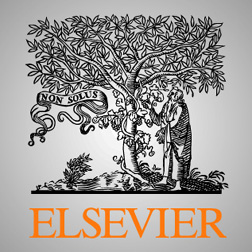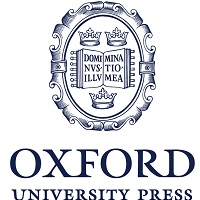دانلود رایگان ترجمه مقاله مدلینگ وفاداری مقصد گردشگری جهانی – نشریه الزویر ۲۰۱۵
دانلود رایگان مقاله انگلیسی مدل سازی وفاداری به مقصد در گردشگری جهانی به همراه ترجمه فارسی
| عنوان فارسی مقاله: | مدل سازی وفاداری به مقصد در گردشگری جهانی |
| عنوان انگلیسی مقاله: | Destination loyalty modeling of the global tourism |
| رشته های مرتبط: | مدیریت، گردشگری و توریسم، مدیریت گردشگری، بازاریابی، بازاریابی بین المللی و مدیریت کسب و کار |
| فرمت مقالات رایگان | مقالات انگلیسی و ترجمه های فارسی رایگان با فرمت PDF میباشند |
| کیفیت ترجمه | کیفیت ترجمه این مقاله متوسط میباشد |
| نشریه | الزویر – Elsevier |
| کد محصول | f442 |
|
مقاله انگلیسی رایگان (PDF) |
دانلود رایگان مقاله انگلیسی |
|
ترجمه فارسی رایگان (PDF) |
دانلود رایگان ترجمه مقاله |
|
خرید ترجمه با فرمت ورد |
خرید ترجمه مقاله با فرمت ورد |
| جستجوی ترجمه مقالات | جستجوی ترجمه مقالات مدیریت |
|
بخشی از ترجمه فارسی مقاله: ۱- مقدمه ۲- مرور بر ادبیات و فرضیه های تحقیق ۱-۲ وفاداری به مقصد نیومن و وربل مشتریان وفادارای را به عنوان افرادی تعریف می کنند که نوعی نام تجاری را مجدد خریداری می کنند. تلیس وفاداری را از دیدگاه رفتاری تعریف می کند و آن را تکرار خرید می داند. هر چند مقالات قبلی به بررسی مسئله بازدید مکرر و تعیین وفاداری گردشگر پرداخته اند، مطالعه مفهوم وفاداری و کاربرد آن در مقصد در نام تجاری کشور دارای محدودیت هایی است. |
|
بخشی از مقاله انگلیسی: ۱٫ Introduction The purpose of this study is to gain an understanding of the antecedents of foreign travelers’ behavioral intentions. Understanding travelers’ loyalty is an important goal for destination marketing managers. In the context of tourist destinations, foreign visitor loyalty remains an important indicator of successful destination management. Previous studies exist on the antecedents of tourists’ loyalty, including motivation, destination image, trip quality, perceived value, and satisfaction in different destination settings (Bigne, Sanchez, & Sanchez, 2001; Chen & Tsai, 2007; Chi & Qu, 2008; Ekinci, Sirakaya-Turk, & Preciado, 2013; Huang & Hsu, 2009). However, little research contributes to the theoretical development in country branding. Although earlier research focuses on city brand images (Merrilees, Miller, & Herington, 2009), country branding is a relatively new area of academic research in marketing. The literature on destination loyalty is incomplete in several important respects. This study attempts to explain foreign travelers’ destination loyalty by developing a model following the existing theory of planned behavior. This research advances country branding research in several ways. First, the article articulates a model of the determination of country brand loyalty, enabling the identification of the important country brand attitudes. Next, in the context of tourism, the review of literature reveals a number of studies on destination loyalty that need thorough investigation. Therefore, practitioners and academics find that conducting more studies of destination loyalty to have a greater knowledge of this concept is important. The relationship among some of these constructs remains unclear and inconclusive in the tourism fields. Although recent advances in the general marketing field indicate the importance of destination image, previous travel experience, and satisfaction in explaining aspects of consumer behavior, research is scarce on the role of these elements in tourism. To address this shortcoming, the current study develops and tests a model linking destination personality and tourist–destination identification with tourist satisfaction, positive word-of-mouth, and revisiting intentions. To bridge the gap in the destination loyalty literature, the study proposes an integrated approach to examine the theoretical and empirical evidence on the relationships among destination image, consumer travel experience, destination satisfaction, and destination loyalty in the tourism context. Also, identifying the relative importance of these factors in determining loyalty may enable destination marketing managers to allocate scarce resources efficiently and consolidate visitor loyalty. ۲٫ Literature review and research hypotheses ۲٫۱٫ Destination loyalty Newman and Werbel (1973) define loyal customers as those who re-buy a brand. Tellis (1988) defines loyalty in behavioral terms as a repeating purchasing frequency. Although previous studies explore the issue of repeated visitation (Bowen & Shoemaker, 1998; Fakeye & Crompton, 1991; Gyte & Phelps, 1989) and identify preliminary tourist loyalty (Backman & Crompton, 1991; Oppermann, 2000; Pritchard & Howard, 1997; Sirakaya-Turk, Ekinci, & Martine, 2015), the study of the concept of loyalty and its applications to destination in the country brand has limitations. Loyalty for a tourist destination has been the subject of intense academic debate with respect to its measurement (Baker & Crompton, 2000; Ekinci et al., 2013; Oppermann, 2000; Yoon & Uysal, 2005). Another issue for the behavioral loyalty measures in tourism contexts is the determination of an appropriate time frame during which customers may or may not return to a destination (Ekinci et al., 2013; Sirakaya-Turk et al., 2015). However, the loyalty behavior approach may not be an adequate assessment of repeated visitation for tourism destinations because many consumers undertake their holiday only on an annual basis. These approaches remain unclear with respect to their conceptual framework and inability to explain the factors that influence customer loyalty (Bastida & Huan, 2014; Yoon & Uysal, 2005). |



